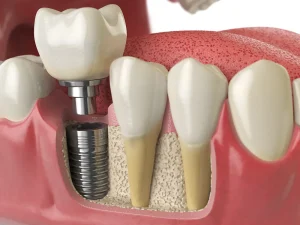The Environmental Impact on Acne: How 2025’s Climate Changes Your Skin
3 min read
Let’s face it—acne isn’t just about bad luck or genetics anymore. As we barrel toward 2025, climate shifts are rewriting the rules of skincare. Rising temperatures, pollution spikes, and erratic humidity aren’t just weather report fodder—they’re active players in your complexion’s drama. Here’s how your skin might react… and what you can do about it.
Why Your Skin Cares About the Weather
Think of your skin as a moody roommate. Too hot? It overproduces oil. Too dry? It panics and flakes. Throw in UV rays and airborne toxins, and suddenly, that roommate’s slamming doors. By 2025, experts predict these environmental stressors will intensify—meaning acne could become more stubborn, reactive, or just plain unpredictable.
1. Heat Waves = Oil Slicks
When thermostats climb, so does sebum production. A 2024 study in the Journal of Dermatological Science found that for every 1°C increase, sebum output jumps by nearly 10%. Translation? Summer 2025 might leave you shinier than a disco ball—and clogged pores love that.
Quick fix: Lightweight, non-comedogenic moisturizers with niacinamide can help regulate oil without stripping your skin.
2. Pollution’s Sneaky Attack
Urban dwellers, listen up. PM2.5 particles (those tiny pollutants from cars and factories) don’t just haze up skylines—they burrow into pores, triggering inflammation. The result? “Pollution acne,” a gritty combo of blackheads and angry red bumps. Cities like Delhi and Beijing already see spikes; by 2025, secondary cities might join the list.
Shield strategy: Antioxidant serums (vitamin C, resveratrol) act like invisible force fields against free radicals.
3. Humidity Whiplash
One day it’s a sauna, the next it’s desert-dry. Erratic humidity confuses skin barriers, leaving them cracked or suffocated. Either way, bacteria party harder in these conditions. Ever notice breakouts after traveling? That’s your skin’s version of jet lag.
Balance hack: Hyaluronic acid attracts moisture, while ceramides repair barrier function—like a reset button for your face.
Future-Proofing Your Skin Routine
You don’t need a crystal ball to adapt. Here’s a no-nonsense game plan for 2025’s skin challenges:
- AM: Antioxidant serum + mineral sunscreen (SPF 50, no excuses)
- PM: Double cleanse (oil-based first, then gentle foam) + barrier repair cream
- Weekly: Clay masks to detox pores, lactic acid exfoliation for surface renewal
The Bigger Picture: Skin as an Ecosystem
Here’s the wild part—your skin microbiome (those trillions of bacteria living on you) reacts to environmental shifts too. Some strains protect against acne; others inflame it. Probiotic skincare isn’t just hype—it’s gardening for your face. Look for products with Lactobacillus or prebiotics to keep your microscopic allies thriving.
When to See a Pro
If your acne starts feeling like a losing battle, don’t white-knuckle it. Dermatologists now use AI-powered skin scans to predict flare-ups based on local air quality and pollen counts. Telemedicine makes consults easier, and hey—sometimes a prescription retinoid is the climate armor you need.
Final Thought: Skin in the Game
Acne’s always been personal, but now it’s planetary. As environments shift, so must our routines—not just with better products, but with awareness. Maybe 2025’s skin struggles will nudge us toward cleaner air, cooler cities… and clearer reflections.





